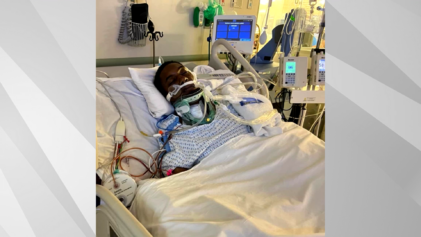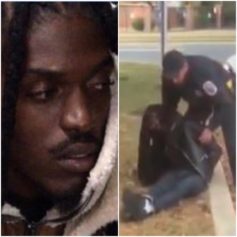The abuse of inmates or suspects in the custody of law enforcement is a national problem that seems to be growing worse with fresh reports week after week of disturbing incidents that call into question how much the nation actually cares about what happens in these incarceral fortresses.
The latest outrage is in Virginia, where officials at the Fairfax County Adult Detention Center just announced that they have banned the use of Tasers after the death of Natasha McKenna in February. McKenna, who suffered from mental illness, was already shackled when deputies at the detention center shocked her with a Taser four times while trying to get her in a transport vehicle while being taken to another jail.
Within minutes McKenna had stopped breathing. Five days later she was dead.
The incident is not dissimilar to the death of Freddie Gray, who suffered a severed spine while in the custody of Baltimore police and died last Sunday, leading to outraged protests that continue to stew in Baltimore.
The U.S. is by far the most prolific jailer in the world, so the treatment of those behind bars—who are disproportionately African-American—should be of greater national concern. Not only is more training drastically needed, but more oversight is desperately in order.
Once a suspect is in custody, there are even fewer checks and balances on the behavior of law enforcement and corrections officials, leading to outrageous abuses. If these officials have little respect for the lives of those they have already arrested, deaths like Gray’s and McKenna’s will continue to occur.
These cases come as a new video emerged of teenage inmate Kalief Browder being beaten by a corrections officer—in addition to other inmates—at Rikers Island several years ago. Browder, who was arrested in 2010 at the age of 16 on the way home from a party, was held at Rikers for an outrageous more than two years without being convicted of a crime—with more than 400 days spent in solitary confinement. Browder told the Huffington Post in 2013 that officers “starved” him by withholding meals as punishment.
Amazingly, Browder was eventually released without ever facing charges.
These cases all show the U.S. has a troubling problem in the nation’s jails. This is likely why the United States won’t allow the United Nations special investigator on torture to inspect prisons in the U.S. or interview inmates at Guantanamo Bay. And while the U.S. tries to hide its own problem, it blasts other nations for human rights abuses.
Juan Mendez, the U.N.’s special rapporteur on torture and other cruel, inhumane or degrading treatment or punishment, said that for the past two years he has been trying to gain access to federal prisons in New York and Colorado, as well as state prisons in California and Louisiana, among others. He said he has been trying to go through the U.S. State Department, but he still hasn’t been given access after two years.
Mendez said he was particularly concerned about the use of solitary confinement in these jails for underage offenders. According to the American Civil Liberties Union (ACLU), more than 80,000 people are held in solitary confinement in the U.S. on any given day.
Mendez said solitary confinement for children “should never happen, even for a single day.” He said the punishment, widely considered cruel even for adults, was “particularly harmful for children because of their state of development and their special needs.”
Mendez released a report earlier this year lashing the United States for being the only country in the world that continues the cruel and inhumane practice of imprisoning children for life without the possibility of release. Because of the unique vulnerabilities of children, Méndez dedicated an entire 21-page report to their status in the world and singled out the United States for its unusually cruel treatment of youths.
In Virginia, Natasha McKenna McKenna was brought to the detention center on Jan. 26, charged with assault on an Alexandria police officer. Because of her case, the Fairfax County Sheriff’s Office also announced this week that it is suspending the use of stun guns after McKenna’s death, which is under criminal investigation.
“When an unusual event occurs, it is standard practice to review specific policy and procedures in reference to that event,” sheriff’s office spokesperson Andrea Ceisler said in a statement released to WUSA. “Due to the recent incident, we are focused on the Taser policy and, as you are now aware, have temporarily suspended the use of this device in the ADC pending completion of our review.”
McKenna, all of 130 lbs., was subdued by six members of the Sheriff’s Emergency Response Team, dressed in white full-body biohazard suits and gas masks, according to the Post, which said McKenna wouldn’t bend her knees so she could be placed into a wheeled restraint chair. So a lieutenant delivered four 50,000-volt shocks from the Taser so that the other deputies could strap her into the chair. As she struggled, McKenna reportedly yelled, “You promised you wouldn’t hurt me!”
The multiple electric shocks stopped her heart and she was declared brain dead and removed from life-support several days later.
“They didn’t need to confront her this way. They made it worse,” said McKenna’s mother, Marlene Williams, to the Post. “She was mentally sick.”
The Taser manufacturer specifically states that it shouldn’t be used on mentally ill people as well as people in a state of “excited delirium,” according to the Post. The manufacturer also says the device shouldn’t be on a person more than three times.



